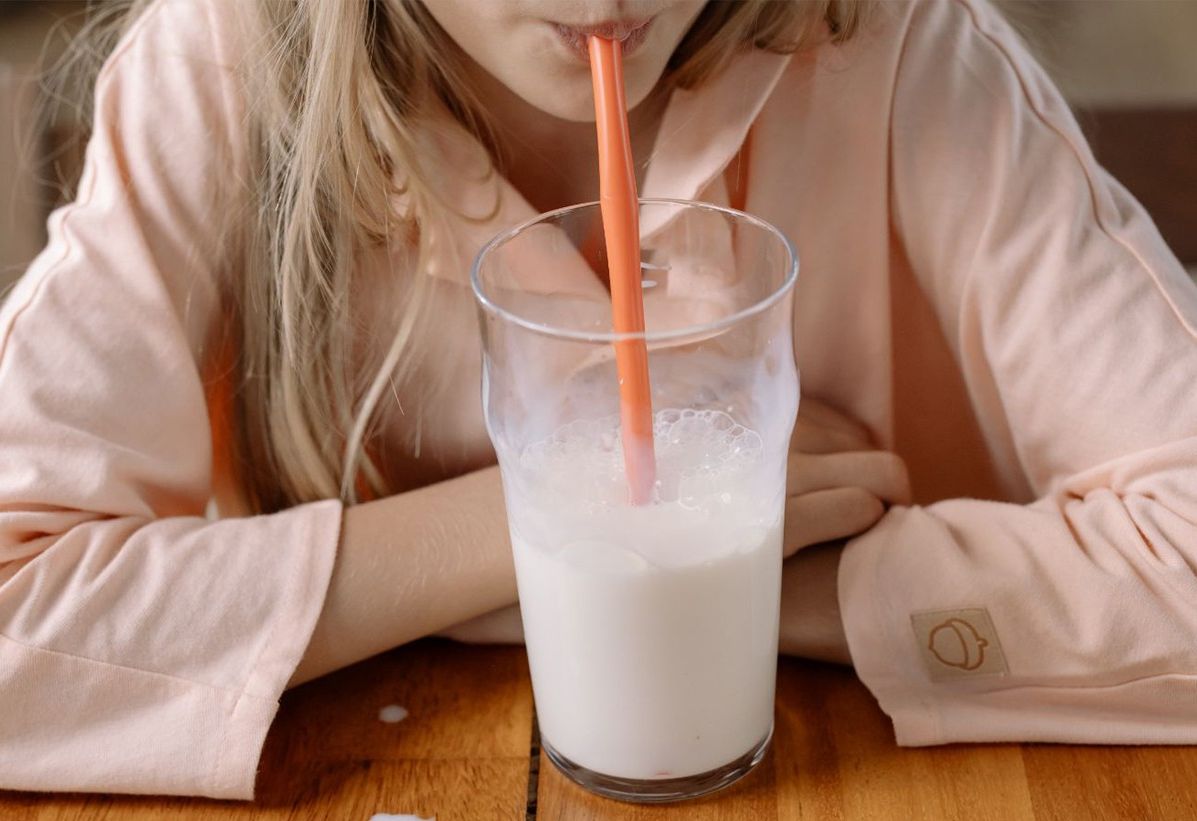Are you up to speed on how much water you're supposed to be drinking every day? One study tells us eight glasses a day and the next few say 16. The University of St. Andrews in Scotland conducted their own study and found there's a substitute to do the job of rehydrating the body quicker and more efficiently than just water.
The study focused on different drinks and their affect on the body's rehydration. The results showed that water was not the best choice, and you might be surprised at one of the best alternatives.

One of the best beverage choices for rehydrating the body is milk. It contains proteins, fats, and lactose. Lactose is the naturally occurring sugar that is found in milk. Combined with the sodium (salt) and potassium (electrolytes), these elements slow down fluid from emptying out of the stomach. This aids in keeping a person's body hydrated.
In this way, milk is a far better provider for hydration than water. Yes, water does contain smaller levels of salt and electrolytes, but it does not contain the lactose, proteins, and fats.
Other drinks the study found helpful include colas, sports drinks, orange juice, lager beer, tea, and coffee. It's important to note, however, that high levels of sugars or alcohol actually dehydrate the body. Caffeine was an aid to hydration as long as the levels weren't too high. If your coffee or tea has approximately 80 milligrams of caffeine, it's in the best zone for helpful hydration.
It's important for people to maintain a healthy level of hydration throughout their day. Dehydration can affect the body in ways that range from minor issues to serious, even dangerous side effects such constipation, dizziness, heart issues, dry skin, and hunger and thirst.
Constipation
One of the reasons constipation can occur is because there aren't enough fluids to keep the pipes moving. This causes the intestines to slow down or completely stop eliminating waste. Besides being painful, dehydration-induced constipation risks include: vomiting, fever, abdominal cramps, bloating, rectal bleeding, and even diverticulitis (trapped waste in small pouches of the intestines that become irritated and inflamed).
Dizziness
Severely dehydrated people can not only face dizziness, but delirium. When dehydrated, people can become unfocused and confused about their surroundings. It's even possible to suffer hallucinations and delusions leading to unsafe behavior and need for urgent medical attention.
- YouTube www.youtube.com
Heart attacks
Your heart rate is linked to blood pressure and blood volume. Volume is indirectly affected by the regulation of fluid intake. As your blood pressure and volume drop, the heart has to work harder to maintain a healthy, working body. If this state is prolonged, the stress can damage the heart and, in severe cases, cause heart attacks.
Dry Skin
Wrinkles are a normal part of the aging process, but dehydrated skin can cause fine lines to appear. These lines can feel itchy and may even crack open, providing entryways for bacteria. How do you know dry skin is dehydrated skin, though? There's a simple test you can do to find out: gently pinch your skin between your pointer finger and thumb. If the skin goes back to its original position in a few seconds you're good. If it doesn't, you're probably dehydrated.
Hungry?
Dehydration can often reveal itself as hunger. You're brain signals to the body that fluids are needed, and you feel that as need for a full meal or snack. If you've just had something to eat and still feel hungry, try drinking a glass of something (like milk!). It will fill up your stomach and help rehydrate your body.























 What foods would you pick without diet culture telling you what to do?
What foods would you pick without diet culture telling you what to do?  Flexibility can help you adapt to – and enjoy – different food situations.
Flexibility can help you adapt to – and enjoy – different food situations.
 Anxious young woman in the rain.Photo credit
Anxious young woman in the rain.Photo credit  Woman takes notes.Photo credit
Woman takes notes.Photo credit 
 Revenge can feel easier than forgiveness, which often brings sadness or anxiety.
Revenge can feel easier than forgiveness, which often brings sadness or anxiety. 
 In the past two years, two malaria vaccines have become available for babies starting at 5 months of age.
In the past two years, two malaria vaccines have become available for babies starting at 5 months of age. By exploiting vulnerabilities in the malaria parasite’s defense system, researchers hope to develop a treatment that blocks the parasite from entering cells.
By exploiting vulnerabilities in the malaria parasite’s defense system, researchers hope to develop a treatment that blocks the parasite from entering cells. Created with
Created with